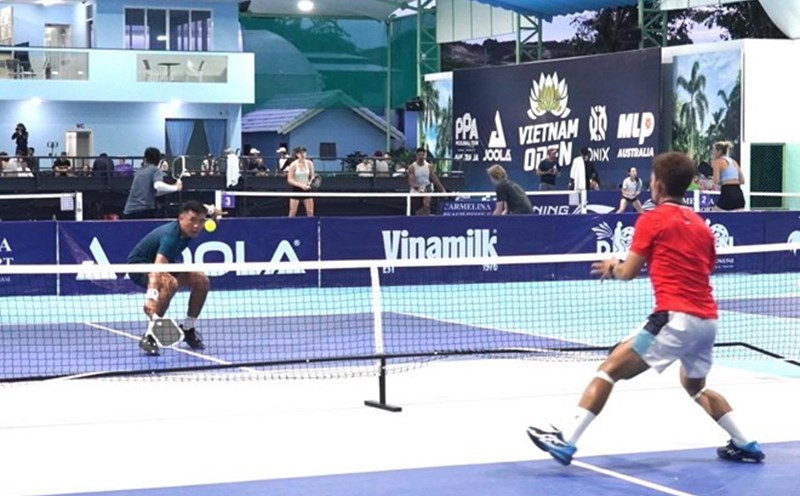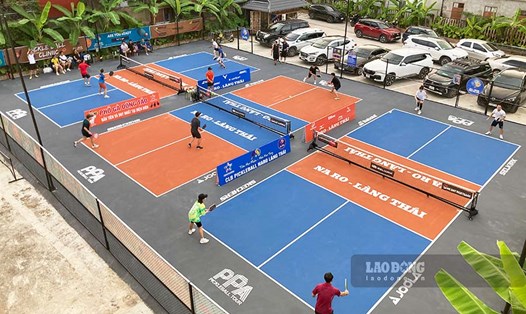Recently, the Investigation Police Agency of Dien Ban Town Police (Quang Nam) issued a decision to prosecute the case, prosecute the accused, and temporarily detain Le Van Hoang Vu (born in 2006, residing in Dien Hong Commune, Dien Ban Town) to investigate the crime of Fraudulent appropriation of property.
Previously, on November 1, Dien Ban Town Police received information from Mr. V.H.L (residing in Hanoi) informing that he had been tricked by a subject residing in Dien Ban Town into sending The Shogun 16mm Pickleball Paddle via post office, then blocked contact.
According to Mr. L, the subject used the Facebook nick "Vu Le" to scam people into exchanging sports rackets on many different social networking forums.
The police determined that this was a relatively new and sophisticated method of fraud and property appropriation on the internet; the amount of money appropriated was not much but caused outrage because it took advantage of the victim's trust and passion for sports.
According to Lao Dong, it is not difficult to find addresses to exchange Pickleball rackets and there have been victims who have fallen into the trap of people buying and selling this type of racket on social networks.
Speaking with Lao Dong reporter on the morning of November 28, Mr. Nguyen Hung - co-founder of the non-profit Anti-Fraud Project - gave some specific signs to detect impersonators and fraudsters when exchanging this type of racket.
According to Mr. Hung, fake accounts often have ambiguous, unverified information, or are recently created. Customers should carefully check the information of the trader, especially the history of posts and activities in sports-related groups and forums.
Customers also need to carefully research information about the buyer/seller, including their background, job, personal history and reputation in online communities. If the buyer/seller does not have clear information or shows signs of forgery, that is a warning sign.

Checking whether the buyer/seller is actively participating in exchange groups, and whether there are other people who have traded with them before is also an indispensable step in avoiding scams.
Typically, fake accounts are used for seeding using automated tools (also known as buffing). These accounts often have unclear information, profiles that share articles in many different fields, and no pictures of daily personal activities.
Not only that, check if the buyer/seller is actively involved in discussion, sales groups, and if there are other people who have traded with them before.
Mr. Hung especially noted, before making a transaction, post a post in the group to check the seller's "legit" reputation, call for reviews from reputable people in the community, or group admin/manager.
"If the price of a Pickleball racket is too low compared to the market or the actual value of the product, it is a suspicious sign. Scammers often offer attractive prices to attract victims.
Fraud often occurs when the subject requests money transfers or transactions through indirect channels, such as bank transfers or sending goods by post without a direct meeting. This is a big warning" - Mr. Hung emphasized.
The expert also said that to avoid being scammed when buying/selling this type of racket on social networks, if possible, prioritize meeting in person to check the product before paying. If not, choose the payment method upon receipt of goods (COD) to avoid risks.
Scams often prey on customers' hasty mentality, accompanied by urgent calls such as "someone is about to buy", "limited stock", making it difficult for victims to check carefully.








